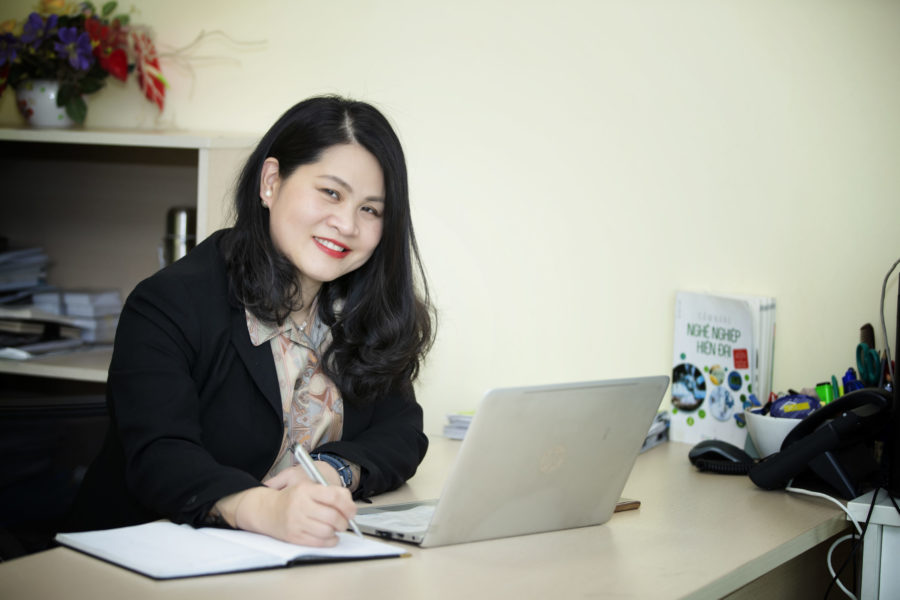Shifting the landscape: Empowering women entrepreneurs in Indonesia and Vietnam to lead
The Indonesian Business Coalition for Women Empowerment team lays out an overview of our leadership and influencing training.

Our WEAVE project ran in Indonesia and Vietnam in 2020 and 2021. It successfully supported over 12,000 women entrepreneurs through our three online programmes – in the midst of the global pandemic. Here, the Indonesian Business Coalition for Women Empowerment, shares an overview of our leadership and influencing training.
WEAVE was delivered in partnership with USAID, Qualcomm® Wireless Reach™ and in-country partners Kinara and WISE, using technology and assets developed with ExxonMobil Foundation.
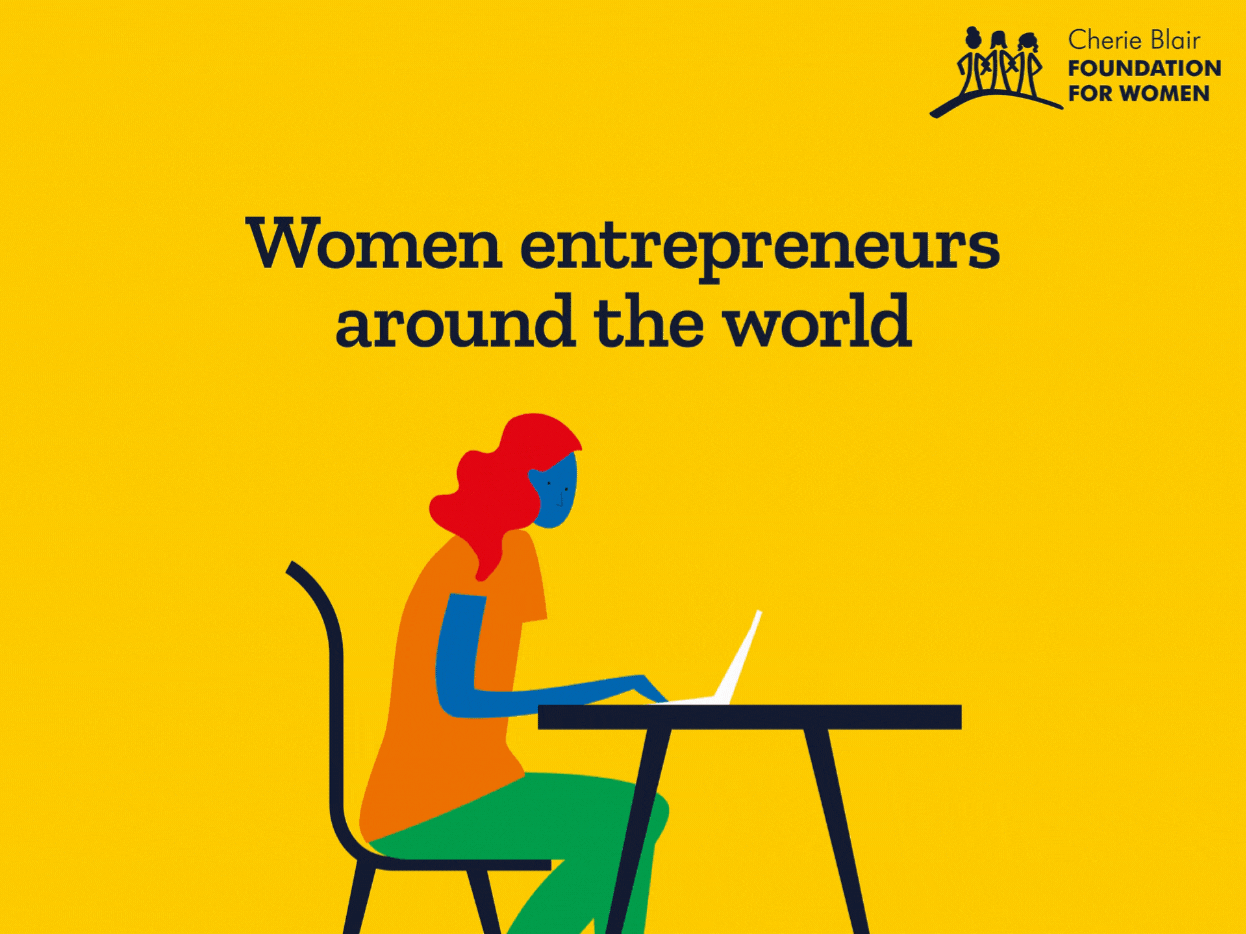
In its 2021 Global Gender Gap report, the World Economic Forum reported that the COVID-19 pandemic has further widened the gender gap and that we would now need 135.6 years to achieve gender parity. The report focuses on four areas: education, health, political empowerment and economic participation and opportunities, with the latter actually worsening. It is now predicted to take 268 years to close the economic gender gap – 11 years longer than 2020’s estimate. Clearly, much needs to be done in this area to further improve gender equality as a whole.
As part of its mission to empower women in low and middle income countries to start, grow and sustain successful businesses and ultimately contribute to closing this gender gap, in 2020 the Cherie Blair Foundation for Women (the Foundation) developed and launched a pilot project in Indonesia and Vietnam, entitled Women Entrepreneurs Amplifying Ventures and Economies (WEAVE), and delivered against the backdrop of the global pandemic, the project sought to train and support women entrepreneurs in the two countries to build and maintain their businesses, and to be able to influence the business environments around them for the better.
WEAVE ran from May 2020 to November 2021, and comprised the delivery of the Foundation’s three flagship programmes through one learning journey:
- HerVenture, a mobile business skills learning app, which reached 12,200 women
- Road to Growth, a seven week online business management and investment readiness programme attended by 266 women entrepreneurs
- Mentoring Women in Business, an online professional mentoring scheme available to 105 women with mature businesses who were matched with business professional mentors within the region for six months
Additionally, women entrepreneurs who completed the Road to Growth phase also had an opportunity to participate in a pilot of the Foundation’s newly launched Leadership and Influencing training, Road to Leadership, which has been designed to complement the core business and investment readiness skills training provided through Road to Growth.
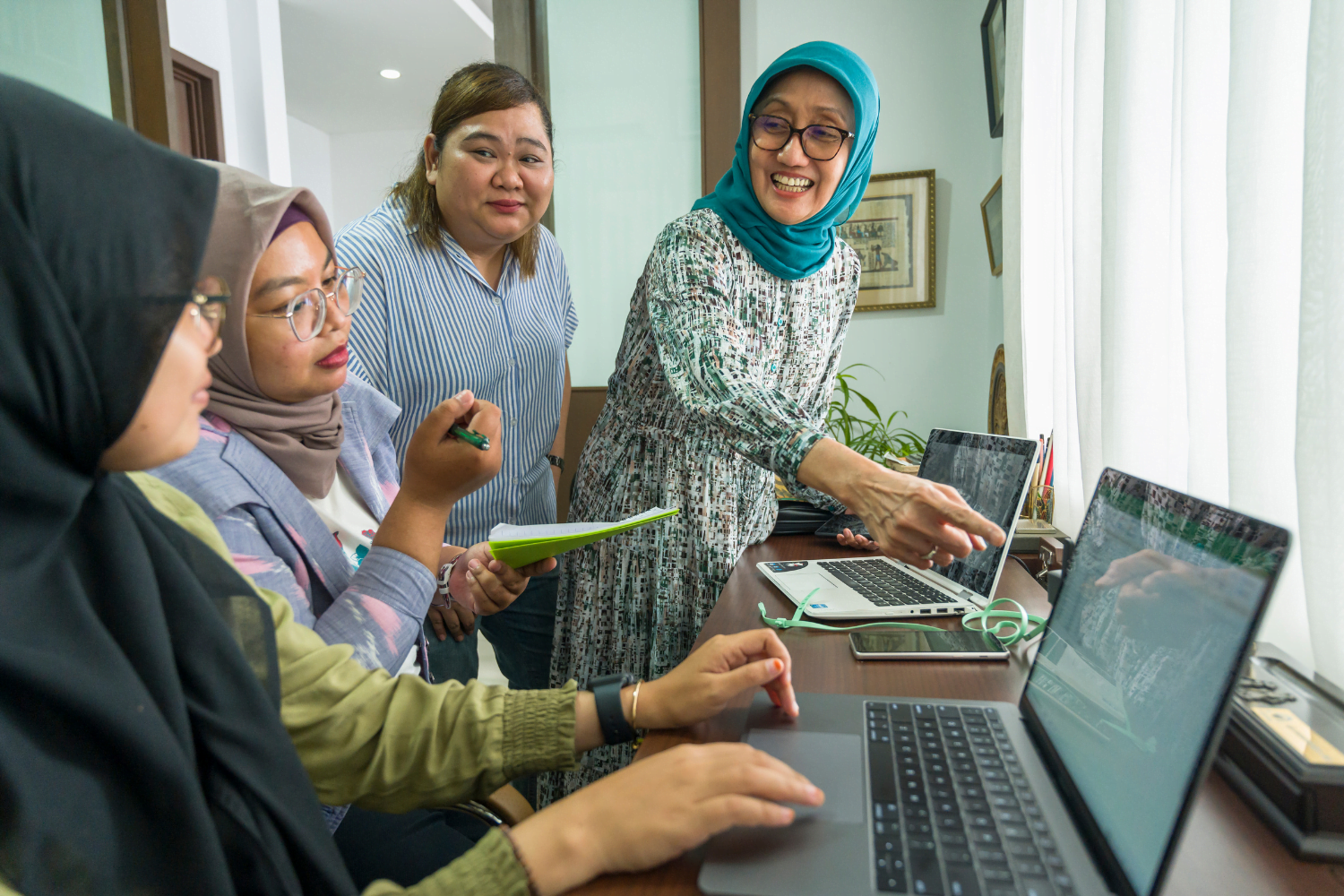
Identifying the need for leadership and influencing skills training
The market assessments, which were both conducted in Vietnam and Indonesia, before beginning the implementation phase of WEAVE, were intended to provide the Foundation team and their partners with insights on the profile and financial and non-financial challenges of the target population groups of women entrepreneurs. It also provided recommendations on geographic focus, suitable training approaches and training needs. The need for a soft skills training to focus on leadership, influencing and communication skills was identified in the market assessments.
The market assessments also revealed that women entrepreneurs in Vietnam and Indonesia often lack confidence and skills in navigating the entrepreneurial ecosystem and encounter many structural and systemic barriers that undermine their full agency and economic empowerment. For instance, many women entrepreneurs in Indonesia are reluctant to apply for loans, with one reason for this being that they are afraid of not being able to repay them. This indicates that they are lacking confidence in their ability to run their business.
Barriers to women’s entrepreneurship fueled by gender stereotypes
The challenges that both Vietnamese and Indonesian women entrepreneurs face as a result of gender stereotypes are similar challenges that many women entrepreneurs face globally. These gender stereotypes have a significant and deep-rooted impact on women entrepreneurs, and this is a root cause of many challenges they face – like a lack of confidence. The Foundation’s recent survey report, based on responses from over 200 women entrepreneurs from 42 low and middle income countries, found that 70% of respondents felt gender stereotypes have negatively affected their work as entrepreneurs.
One common stereotype that women entrepreneurs face is the perception they are not able to fully focus on their businesses as they have other family responsibilities, and therefore they would not be able to repay any loans. This leads banks or loan agencies to reject or complicate loan requests from women as they are considered incapable of making repayments. Additionally, because of the gender stereotypes that have impacted women their entire lives, they are often less confident when approaching investors – and as such less likely to secure investment – means banks or loan agencies are more reluctant to give women entrepreneurs loans. These stereotypes also feed back into women entrepreneurs’ own perceptions of their capabilities and can have a lasting impact on their aspirations and confidence.
Gender stereotypes still limit leadership and influencing power by women entrepreneurs in Vietnam. Advancing their capacity in this aspect and inspiring them to lead and influence will not only help empower women entrepreneurs themselves but also improve perceptions of the role of women in the society.
It is clear that there is a major need for changes not only in women entrepreneurs’ own individual skills, capabilities and resources, but more importantly structural changes to the environments in which they operate in order for the barriers they face, like gender stereotypes, to be overcome. Indeed, the market assessments strongly suggested soft skills training to build women’s confidence and leadership skills in this respect.
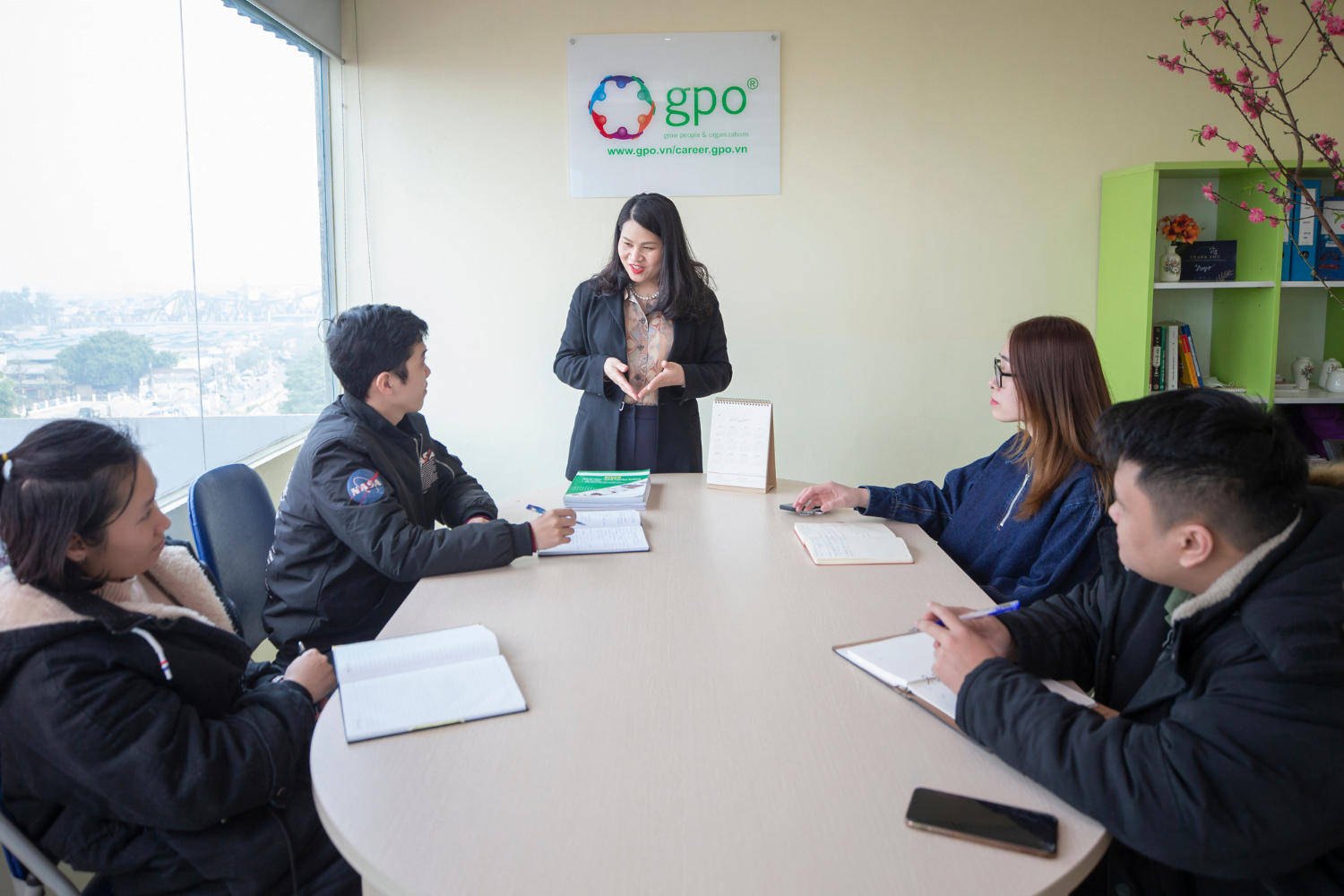
Leadership and influencing at the core of new training
The Foundation collaborated with their local delivery partners WISE in Vietnam and Kinara in Indonesia as well as local consultants, including the Indonesia Business Coalition for Women Empowerment (IBCWE), to develop the materials for the leadership and influencing pilots for WEAVE, now known as Road to Leadership. The covered topics such as understanding the role of gender stereotypes within the local context and entrepreneurial ecosystem, leadership and communication skills. Additionally, the training was complemented by inspirational talks from successful female entrepreneurs who spoke to the ways that they have been able to overcome challenges related to gender stereotypes in their businesses.
Despite the different contexts and entrepreneurial ecosystems in Vietnam and Indonesia, the lessons learned through Road to Leadership were very similar across both countries.
There is a high demand for soft skills trainings like this one delivered through WEAVE and more can be done to expand this type of training offer. The Foundation and their partners originally planned to deliver the Road to Leadership trainings as a short pilot to assess the demand and the relevance of the pilot training materials before scaling it further in subsequent programmes. However, there was an overwhelmingly positive response to the training in both countries with participants in Vietnam and Indonesia asking for a follow-up training to delve into the topics further. This demand highlighted that women entrepreneurs value a training like this that can be used to complement the core business skills that they learn in other trainings like Road to Growth.
It is important for participants to be aware of their strengths and weaknesses to enable them to understand how to leverage these in their business. To achieve this, participants were asked to complete the DISC personality assessment as the first activity in the trainings in both countries. When women entrepreneurs become more aware of themselves, they can perform better as a person and as a leader in their team. This will help them recognize their team’s strengths and weaknesses, leading to stronger leadership by enabling better-informed decision-making, more effective communication, conflict resolution and appropriate task delegation.
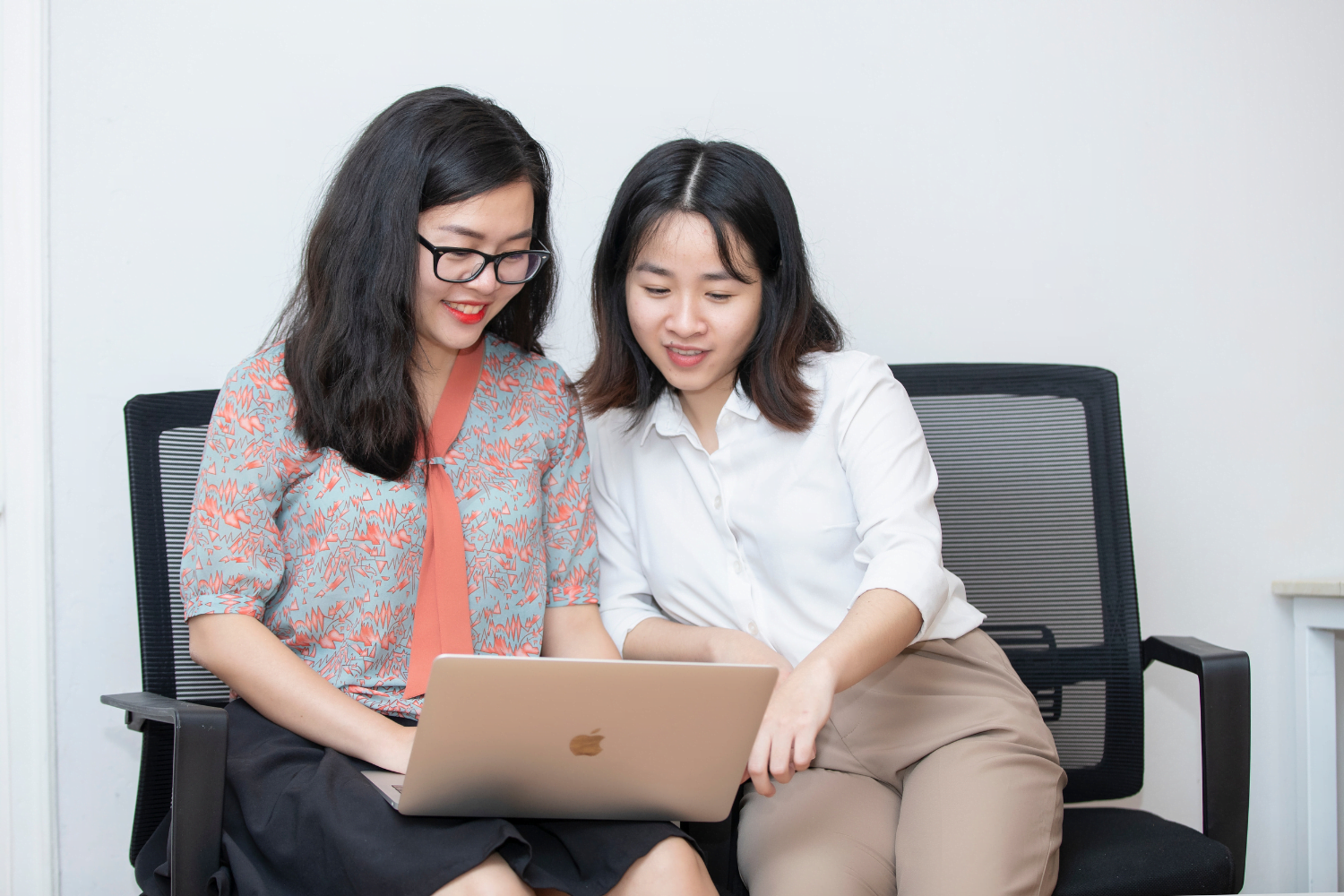
Participants value opportunities to engage with their peers. Although trainings in both Vietnam and Indonesia included some opportunities for participants to break out into smaller discussion groups, feedback was that they would have liked more time on this as hearing from their peers is incredibly valuable.
While delivering during COVID-19 demonstrated that many trainings could be delivered online, the benefits of in-person engagement with other participants should not be underestimated. Feedback from participants suggests that future trainings should be delivered either entirely in-person or as a blended learning training (combining in-person and online). Online settings have limitations that might hinder knowledge sharing, for example a trainer may be unable to assess the nonverbal communication of participants such as gestures, which is vital in training to do with communication. Face-to-face sessions also allow participants greater opportunity to practice their soft skills development with trainers and fellow participants, and to interact with each other and create a bond.
Women have equal potential to succeed and lead [compared to men], but we need to sharpen our leadership skills and improve our self-awareness. We should keep building our confidence and skills to effectively communicate.
Conclusion
Women’s economic empowerment includes access to and ability to participate in economic decision-making processes and in the economy at all levels. This requires increased voice, agency and meaningful participation for women who are often underrepresented within the entrepreneurial ecosystem.
Multiple studies have shown there is a confidence gap between men and women in business. This issue together with systemic barriers in the entrepreneurial ecosystem hinder women’s opportunities to grow their businesses. Furthermore, as observed by IBCWE, women entrepreneurs often have fewer opportunities to access soft skill training in things like presentations or public speaking. This also affects their confidence in pitching their business, which then stymies their access to finance and subsequent business growth and success.
The Foundation’s leadership and influencing training pilots in Indonesia and Vietnam were designed to overcome key barriers facing women entrepreneurs by enhancing their skills in leadership and influencing, as well as strengthening their confidence and practical communication skills. These skills can then be applied by participants to lead their teams more effectively, engage and shape the entrepreneurial ecosystems around them, and to successfully pitch their businesses to stakeholders including potential investors.
Following this pilot, the Foundation has strengthened the training materials and is preparing to offer this training to more women entrepreneurs in other low and middle income countries. In this way its efforts to provide women entrepreneurs with opportunities to learn about leadership and influencing, to lead with confidence and to identify and tackle barriers they face whilst running and growing their businesses can achieve much impact. This in turn is set to increase the decision-making power of women entrepreneurs and ultimately contribute to closing to the gender gap in entrepreneurship.
Supporting women entrepreneurs with leadership and influencing skills
Download our fact sheet (79.0KB)
DownloadMade possible by...




Partner with us for incredible global impact
Partnership working is crucial to the success of our programmes. We work closely with companies and institutions to design bespoke projects that harness their expertise, fulfil their objectives, and realise their passion for sustainable development. Working together, we can be an instrumental driver for women’s economic empowerment.
Find out more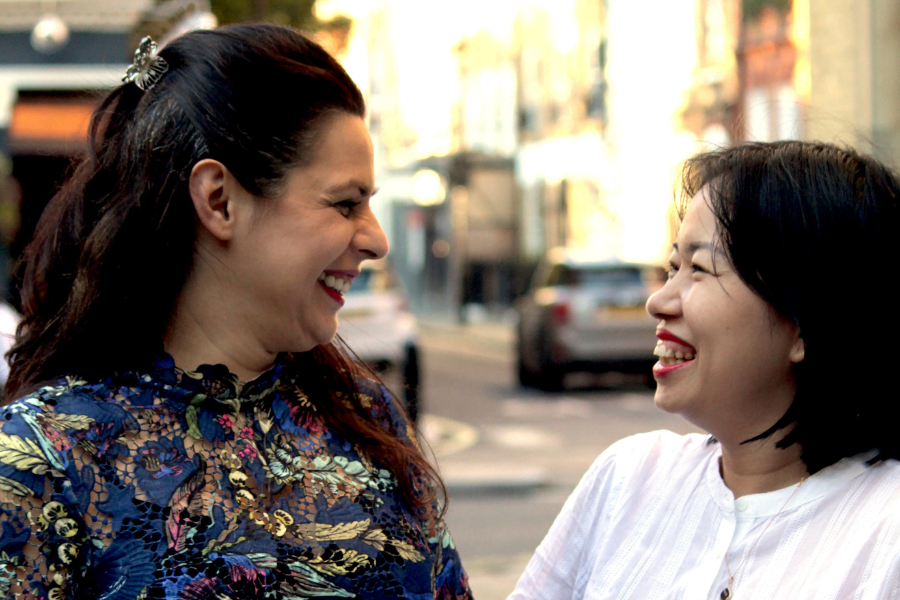
Road to Leadership
Across the world, women entrepreneurs are denied decision-making power and visibility in business environments. Our Road to Leadership programme supports them to claim a seat at the table.
Find out more